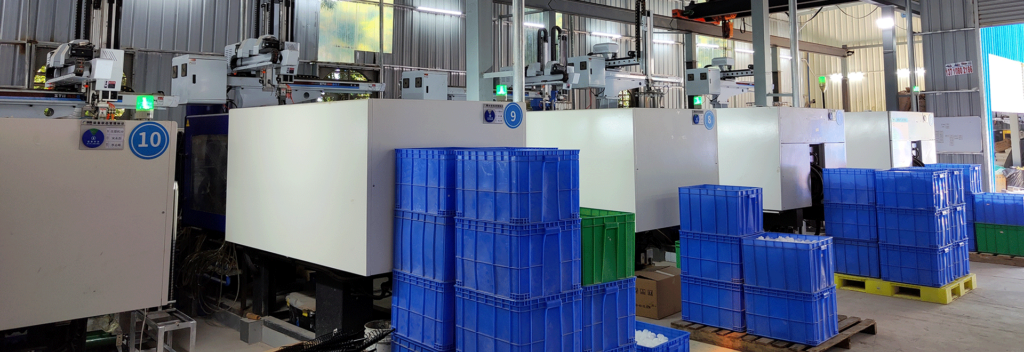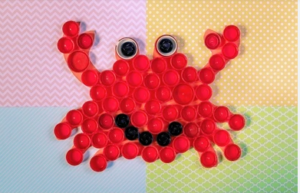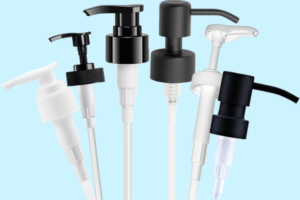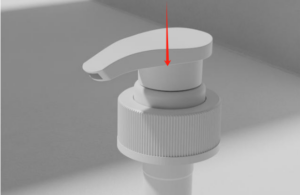Las tapas de plástico se han convertido en una parte integral de la vida cotidiana, con una variedad de usos en la comida, Industrias automotrices y químicas. Vamos a sumergirnos profundamente en el mundo de las tapas de plástico y explorar su composición, proceso de fabricación, usos, pros y contras, y las diferencias entre las tapas de plástico y metal.
¿Qué es una gorra de plástico??
Las tapas de plástico están hechas de diversos materiales plásticos mediante moldeo por inyección., prensado en caliente y otros procesos. Por lo general, se utilizan como forma común de sellado de envases para botellas., latas o barriles. Son especialmente utilizados en la bebida., campos químico y farmacéutico. Se utilizan principalmente para sellar productos en contenedores para evitar que derrames y otros contaminantes entren en el producto.. Las tapas de plástico vienen en varias formas y tamaños para satisfacer las necesidades de sellado de productos de diferentes industrias.

¿De qué están hechas las tapas de plástico??
Las tapas de botellas de plástico suelen estar hechas de dos tipos de plástico.: polietileno de alta densidad (PEAD) y polipropileno (PÁGINAS)
Polietileno de alta densidad (PEAD):El HDPE es un fuerte, Plástico duradero que se utiliza a menudo para botellas y recipientes.. También es resistente a productos químicos y al calor., lo que la convierte en una buena opción para tapas que deben soportar condiciones duras.
polipropileno (PÁGINAS):El PP es ligero., Plástico flexible que se utiliza a menudo para tapas que deben ser fáciles de abrir y cerrar.. También es resistente a grietas e impactos., lo que lo convierte en una buena opción para tapas que deben poder soportar un manejo brusco.
Cómo se fabrican las tapas de plástico
El proceso de fabricación de tapas de botellas de plástico incluye principalmente varios pasos.. Primero, Las materias primas se convierten en materias primas de tapas de botellas de plástico mediante procesos de producción como fusión y extrusión.. Entonces, Las materias primas se colocan en la máquina de moldeo por inyección para su procesamiento y se moldean a través del molde.. Durante el proceso de moldeo por inyección, Las materias primas plásticas fundidas se inyectan en el molde., enfriado y solidificado dentro de un cierto período de tiempo, y finalmente se forma una tapa de plástico.

¿Cuáles son los diferentes tipos de tapones de plástico??
Hay muchos tipos diferentes de tapones de plástico., cada uno con su propio diseño y propósito únicos. Algunos de los tipos más comunes de tapas de plástico incluyen:
Tapones de rosca: Estas tapas tienen roscas que se atornillan a la parte superior del recipiente.. A menudo se utilizan en botellas. (tapas de comida, tapas de botellas de agua, tapas quimicas, etc.), paso, y jarras.
Tapas a presión: Estas tapas encajan en el borde del contenedor.. Se utilizan a menudo en envases de alimentos y botellas de bebidas..
Tapas de engarce: Estas tapas se engarzan en la parte superior del contenedor usando una herramienta especial.. A menudo se utilizan en botellas de vidrio de vino y cerveza..
Tapas a prueba de manipulaciones: Estas tapas tienen características que muestran si se ha quitado la tapa., como si el sello estuviera roto. Se utilizan en contenedores de alimentos y medicamentos para ayudar a prevenir la manipulación..
Tapas abatibles: Estas tapas tienen una bisagra que permite abrir y cerrar fácilmente.. A menudo se utilizan en salsa de tomate., mostaza, y otros condimentos.
Gorras deportivas: Estas tapas tienen una boquilla que permite verter líquidos fácilmente.. A menudo se utilizan en botellas de agua y bebidas deportivas..
Tapas de gatillo: Estas tapas tienen un gatillo que libera líquido al presionarlo.. A menudo se utilizan en productos de limpieza y pesticidas..
Tapas de bomba: Estos tapones tienen una bomba que dispensa líquidos en pequeñas cantidades.. A menudo se utilizan en lociones., jabones, y desinfectantes para manos.
Diferencias entre tapones de plástico vs tapones de metal
Las tapas de plástico y las tapas de metal tienen cada una sus propias características y ventajas únicas., Adecuado para diferentes tipos de productos y necesidades de embalaje.. Ahora exploremos las diferencias entre tapas de metal y tapas de plástico..
- Tapas de plástico Son livianas., barato y fácil de abrir y cerrar. Las tapas metálicas suelen estar hechas de aluminio o acero.. El precio es relativamente caro.
- Las tapas de plástico también son resistentes a los productos químicos y al calor., mientras que las tapas de metal pueden soportar temperaturas y presiones más altas y al mismo tiempo son resistentes al calor y a las altas temperaturas.
- Ambos pueden tener funciones a prueba de manipulaciones., pero las tapas de metal son más resistentes a la manipulación que las de plástico
- Las tapas de metal tienen mejores propiedades anticorrosión y de sellado que las tapas de plástico.
- Las tapas de metal son más resistentes y duraderas que las de plástico.
- Ambos son reciclables, pero las tapas de metal son más populares
Pros y contras de las tapas de plástico.
Mientras que los plásticos tienen muchas ventajas en términos de durabilidad, caza de focas, reciclabilidad, a prueba de manipulaciones, y rentabilidad, también tienen ciertas desventajas, como el riesgo de corrosión, costos de transporte, y reutilización limitada. Analicemos en detalle los pros y los contras de las tapas de plástico.
Ventajas de las tapas de plástico:
- Bajo costo: El plástico es un material económico., por lo que el costo de producción de las tapas de plástico es relativamente bajo.
- Ligero: El plástico tiene una baja densidad., por eso las tapas de plástico también son ligeras, lo que puede reducir los costos de transporte.
- Fácil de procesar: El plástico se puede procesar fácilmente en varias formas y tamaños., para que las tapas de plástico puedan satisfacer diversas necesidades de aplicación.
- Buen sellado: Las tapas de plástico pueden proporcionar un buen sellado para evitar que el contenido se filtre o se deteriore..
- Resistencia química y térmica: Algunos tipos de plásticos tienen buena resistencia química y térmica y pueden usarse para envasar productos químicos o sensibles al calor..
- Reciclable: Se pueden reciclar muchos tipos de plásticos., que ayuda a reducir la contaminación ambiental.
Desventajas de las tapas de plástico.:
- Mala durabilidad: Las tapas de plástico generalmente no son tan duraderas como las de metal y pueden agrietarse o dañarse más fácilmente..
- Impacto ambiental: El plástico es un material no biodegradable, por lo que la producción y uso de tapas de plástico tendrá un cierto impacto negativo en el medio ambiente..
- Puede contener sustancias nocivas: Algunas tapas de plástico pueden contener sustancias nocivas., como el bisfenol A, que puede ser perjudicial para la salud humana.
Asóciese con FANXUN: Un fabricante confiable de tapas de plástico
Cuando se trata de elegir un confiable fabricante de tapas de plástico para sus necesidades de embalaje, Asociarse con FANXUN puede ser la solución ideal.. Con reputación de calidad., innovación, y experiencia en la fabricación de tapas de plástico, FANXUN ofrece una gama de productos y servicios para satisfacer sus necesidades específicas.. Además, FANXUN ofrece una amplia gama de opciones de tapas de plástico personalizadas para garantizar que sus tapas de plástico coincidan con su marca., requisitos del producto, y preferencias de embalaje. Desde seleccionar el tamaño y la forma correctos hasta incorporar su logotipo y elementos de diseño., FANXUN puede crear tapas de plástico personalizadas que reflejen la imagen de su marca y mejoren el atractivo visual de sus productos..
Conclusión
En conclusión, Las tapas de plástico juegan un papel vital en diversas industrias debido a su versatilidad., durabilidad, y funcionalidad. Entendiendo la composición, proceso de fabricación, usos, Pros y contras de las tapas de plástico es esencial para tomar una decisión informada y elegir la solución de embalaje adecuada para sus necesidades.. Ya sea que esté almacenando alimentos, quimicos, productos automotrices, u obras de arte, Las tapas de plástico son una opción confiable y rentable para sus requisitos de embalaje..




